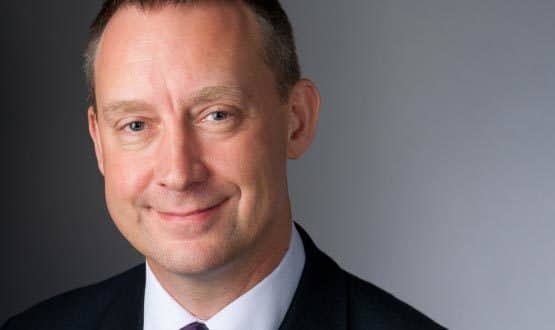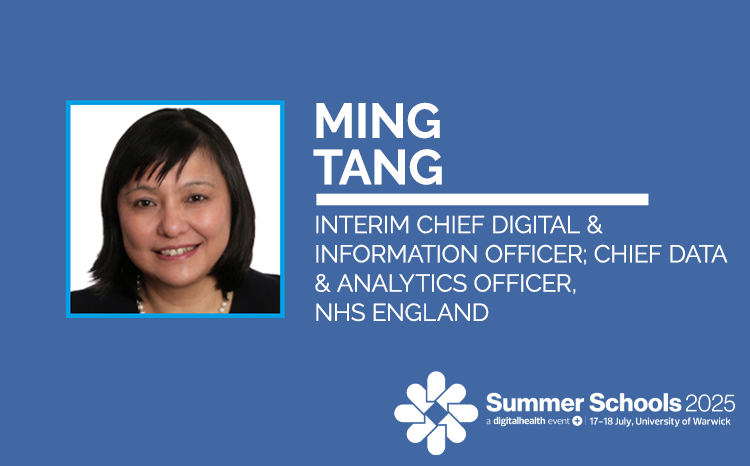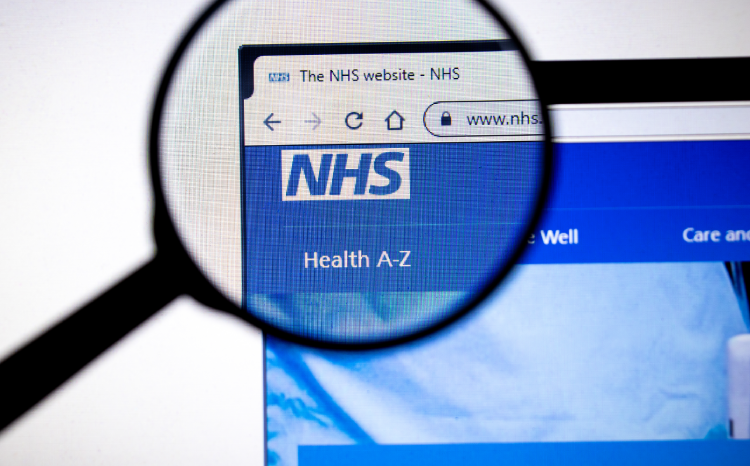Swindells says NHS’s digital best are ‘mediocre’ by international standards
- 20 October 2017

NHS England’s director for operations and information has described the best NHS users of technology as comparing unfavourably with the best internationally.
Speaking at a Thursday event in London Swindells said “the best hospitals in the UK, in terms of using IT, are mediocre by international standards”.
“Our hospitals are a desperate disappointment in terms of technology,” said Swindells.
“Hospitals in Chile, Peru, Mexico, Qatar, Malaysia and Singapore, all of whom have made a better job of digisiting hospitals than the best the UK has to offer,” argued the NHS England director.
Swindells added: “We have to get from the best the NHS has to the best internationally”.
The NHS England director of operations and information, and former Cerner executive, suggested that the supplier community was still suffering “post-traumatic stress” following the experience of the NHS National Programme for IT, continuing to discourage innovation and risk taking.
“What a CIO from NSW in Australia said to me was that there was post-traumatic stress disorder that the IT industry and the NHS are suffering after the national program. The fear of doing anything innovative, the fear of chief executives to get into IT because it could cost them their jobs.”
Swindells also took issue with the benchmark Commonwealth Fund 2017 Mirror, Mirror report, which rated the UK NHS, alongside Australia and the Netherlands as being the best healthcare system in the world, on a basket of measures including equity, access and outcomes.
“I don’t think the NHS is the best healthcare system in the world despite what the Commonwealth Fund says,” said the NHS England director.
“I do think it is the best value healthcare system in the world, and part of our job is to prove if the government chooses to put more money into the health service, what they buy is more healthcare and more health, that it is good value for investment.”
He argued that the NHS requires root and branch transformation, and currently has almost all the patients in the wrong place, and needs a systemic correctional shift.
Referring to the emergency service care strategy, as winter approaches and A&E departments are already at capacity, he said “we are struggling to meet the target we set for ourselves.”
“Half the people who go don’t need what A&E has to offer, they need what a GP has to offer.”
But, he said this wasn’t possible, “Now GPs are full and it’s hard to get an appointment. The Royal College of GP study says 27% of people who go to a GP don’t need to, they could have gone to a pharmacist instead.”
He said the fastest growing group of patients attending A&E is working adults – so they can be seen quicker – even though it’s four hours – it’s a guaranteed four hours. “So, the system is designed to incentivise behaviours that make the system harder to run.”
The challenge, he stressed, was to change the system, using technology as an enabler, “We have to put in place a set of pathways that is a digitally, technically-enabled set of pathways, it isn’t about getting technology into the system, it is about changing the way patients pass through the system.”
The opportunities to take out duplication, take out waste and stop wasting patient time is absolutely there – “and a big part of what we have been doing is trying to align the thought process around technology with the thought process around the transformation of the NHS.”
He said it is about delivering the most healthcare with the money pot available and not focusing on a gap in technology but the gap in service, which can be supported by the deployment of technology.
The NHS England director said that the old NHS IT strategy, now being updated with the GDE programme, wasn’t wrong, “it just felt like an IT strategy and not like an NHS transformation strategy.”
As part of the GDE programme NHS England required vendors to create deployable models. “Part of that is we expect to drive down the cost of deployment of systems and we can see vendors working hard to get their templates/blueprints to roll out.”
He also announced that he expected fast followers to become GDEs. “I also expect Fast Followers to become GDEs, to have fast followers of their own so it becomes a spread model… you can’t hang around here not delivering.”





32 Comments
Evergreen Life offer access to records via app and web through all the 3 major suppliers, linked to a PHR. We aim to be the place where all our records come together: GP, hospital, social care – and our own records, such as which OTC meds we are taking.
So you can right now manage your own health better through our app, get meds reminders, share your record with specific others such as carers and consultants. More developments such as social prescribing are in hand.
The GP contract obliges all GPs to offer access to your coded record: problem titles, allergies, immunisations, test results, medication. Not automatically to letters and consultation notes, though practices can easily switch those on. We should remind practices of their obligations if they do not allow us to see our test results, for instance.
What is happening in e-health in South Korea? I’ll be there next week and am keen to find out more.
It’s good our paths have crossed again Brian. I submitted a request for a letter to access the Evergreen Life app and will be given an answer tomorrow. A reluctance to access our EHR pervades the Practice.
I would welcome feedback from your visit to South Korea and wish you all the best. They have an amazing CSR for their population. Broadband access is available for all its citizens – rather different from the UK!
NHS Trust management and boards need to be supported to develop and implement Trust service strategies and plans for a digital world. IT strategies per se are a thing if the past. Digital has been our way of life for some time and yet NHS Trusts still behave as industrial age organisations. Australia is not a lot better, despite Mr Swindells assertions although they are trying and, at least in Vic and NSW there are pockets of excellence.
i agree with what you have said but would add … in MPHO, maybe Australia has a slightly more sensible approach in gently encouraging those that are better off, to take out insurance for some of their health needs e.g. use of ambulance service, basic GP appointments etc
Clive, not only Australia have this sensible approach. France, Germany, Netherlands and Portugal offer different variants of “top-up” insurance, which seem to work, and give faster treatments to patients than the NHS. While the NHS is funded only by tax, it will continue to go downhill. No government, least of all the Tories, are going to raise taxes enough to fund the NHS adequately.
I was going to say although a lone voice I am happy to be part of the revolution but, and without intending on making light of a serious topic, it reminds me of an Alan Partridge sketch:
Alan: “I loved your article in the Guardian, by the way.”
Tony: “Really?”
Alan: “I loved that phrase you used, it was very clever – ‘Revolution not evolution’.”
Tony: “No, it was the opposite. ‘Evolution not revolution’.”
Alan: “Well whatever. Because that is me. I ‘evolve’, but I don’t… ‘revolve’….”
The point on this occasion, ignoring the absurdity, is about evolving existing foundations and aligning like minds. As you pointed out Christine none of these ideas are new. For this to progress in the UK no-one needs to invent a new wheel and we certainly don’t need to take to the streets and cause revolt (however tempting that may be!).
In all seriousness this is a topic close to my heart working in an industry that supports community healthcare (internal technology team) and having an up close and personal relationship with NHS services.
I will be visiting EHI Live next week (Wednesday only) so happy to meet with anyone for a coffee who may be attending. Failing that I am happy to work with others to create a movement for change.
Fascinating discussion and one that deserves a forum for continuous discussion – does one exist?
I think the underlying theme here is that technology makes a fantastic supporter but can not force change. It’s the processes underneath that need to change which then enable technology to facilitate efficiencies.
My personal view of data exchange and ownership is that we need to move away from point to point considerations and create a strategy for centralised sharing. Centralised sharing being central to an individual not necessarily to the state. This would make personal health information available to and owned by an individual (yes ownership is already the case but not properly recognised) and shared by requirement through authorisation to external bodies whether that be NHS or community services.
In recent times I’ve met some fascinating clinicians that are trying to drive change. It feels like there is a movement continually growing, albeit very slowly and over more years than anyone would care to admit. Wouldn’t it would be great if a collective body of clinicians of technologists would band together grab these issues by the seat of their pants and create positive change?
Maybe all this is already happening and I’ve missed it.
If your suggestion is happening Chris, i too have missed it – just as the majority of the population missed the point of the misconceived publicity for Summary Care Records.
The King’s Fund 2012/2013 health and social care programme, ‘Time to think differently’, cannot be shelved. On the edge of a AI/machine learning revolution, urgent intervention, education and public understanding, in an ethos of making personal health information available to all, surely is a moral imperative?
For example, “By 2022, expect routine use of teleconsultations and remote monitoring”. By 2023, “regenerative medicine likely to have created new treatments for heart and bone disease; by 2024, Genetic profiling to predict risk of disease could be routine; by 2026, 1 million people expected to have dementia with estimated care costs of £35 billion; by 2027, robots could be routinely used at home & in care settings; by 2030, people in Britain with arthritis expected to rise 100% to 17 million”.
We certainly need a collective body of clinicians of technologists who would band together grab these issues by the seat of their pants and create positive change.
Yes Christine “We certainly need a collective body of clinicians of technologists who would band together grab these issues by the seat of their pants and create positive change.”
But how do we get them to band together. They have never done so in the past. Why they should do so now? Especially after the Wannacry fiasco, when clinicians are perfectly justified in having nothing moreto do with the IT people, who landed them in this mess.
IT people have to gain the trust of clinicians. They should be schooled how to do it. They should be taught how clinicians tick, and how they can influence them. And how to persuade nurses that feeding in data can help them do their job better. (They don’t believe this at the moment.)
On the other sides, medical schools should teach junior doctors what they gain from IT, and how to evaluate whether an IT system is crap, and, if it is, how to persuade the IT crowd how to fix it. (It has always amazed me that although most young medical students, must, by definition, be “digital natives”, when they go into medical school, their digital skills are beaten out of them by BMA culture by the time they start practicing. Surely, they must want to throw out the crap systems they are faced with in their hospitals, and replace them by something more 21st century. But they don’t. )
The other thing that ought to happen is that elderly patients, like me, who have spent their careers in the IT industry, and therefore should know a bad system when they see it,should band together, to bang the heads of the clinicians and IT people together, to produce seamless systems that bind together GP, hospital doctor, carer, pharmacist, physio-therapist and Uncle Tom Cobbley I have suggested this to contemporaries, but they, like the rest of the population, seem to accept the sub-standard fragmentation that NHS IT offers.
So, Christine, making a revolution is going to be hard. The culture is agin it.
The data should be the patient’s to do with what they need to manage their health. However, the data controller is the practice/provider. It’s not the likes of EMIS or TPP (Top) that lock any of these things down. Many practices are still terrified of what patients will find in their medical records – and also afraid of freaking patients out with the likes of test results that could scare someone… only to be normal for the patient.
We not only have challenges with data, sharing, consent, access…. but there is a wider problem that exists, which is the route of all the NHS’s capacity woes, people turning up at the wrong place for the health service, because we have trained them to go there (A&E) and an aging, and increasingly unhealthy population that is readily stuffing itself with all the carbs, nicotine, and alcohol it can.
Digital solutions can only go so far.
Patients’ medical records only freak us out if shared decision making isn’t common practice – the possible outcomes of medical tests/interventions should be shared in both primary and secondary care. Understanding the +ve/-ve outcomes of tests is empowering and helps self management.
Perhaps if there is a less patronising and more compassionate ethos of our ageing population and stressed people who resort to “carbs nicotine and alcohol”, people’s enhanced self-esteem may help improve their health?
Preaching to the converted… but its clinicians that need convincing to open up this kind of approach. Too regularly patients are not informed of whats happening to them and why – in both acute and primary settings. Technology can do so much, but not without buy in from clinicians on the front-line who need to use the tools.
Indeed, “buy in from the clinicians” is essential. Put it another way “IT insiders must be able to sell their wares to clinicians”. This the IT insiders have signally failed to do so far. The failure starts from the top: the great IT czars, Richard Granger and Tim Kelsey, didn’t get it right. Whether Swindells will do any better has yet to be seen. Otherwise, clinicians, IT people, hospital managers and Uncle Tom Cobbley will continue to sneer at each others’ failings, and the patient will be left stranded with the same old paper and faxes.
nail on the head there Shauna! I think big and small P political context is what drives this…bottom up is likely the only real way to make progress…
There are companies like us at DoctorLink ready to really help solve this problem… but whilst access to gp systems data is practically impossible , our options are limited .
Please Matthew apply pressure to Tpp and EMIS to open up. The data belongs to the NHS and the patient
Well said Andrew.
Yes please… apply pressure to Top and EMIS. I am having an unnecessary battle with my GP practice to gain access to my personal health data that I feel the only person related to my health whom is unable to access it. Other GP practices offer this service. When will it be a universal right to access our records IF requested? I understand some people have no wish to use this facility. It’s about ownership of our health enabling more effective self management and collaboration.
Fully agree, Christine. Though my problem appears to be the GP. They use EMIS and are able to give me access to Test results but won’t. I have requested full online access to my medical record but, so far, have only got Coded Diagnoses and Procedures.
This has wasted time for my GP and me when I book an appointment to view my test results only to be told that all is fine. I want the numbers, not a patronising “Nothing to worry your little head about”.
I totally share your comment Ian. I have been asked to pay for my blood test results.
As key stakeholders of our healthcare we seem to have lost sight of the 2012 White Paper, Equity and Excellence: Liberating the NHS. It set out the Government’s vision of an NHS that puts patients and the public first, where “no decision about me, without me” is the norm
In the Executive response, 6.iii ‘The importance of making “no decision about me, without me” a reality for everyone, and the concern that, without proper implementation, the proposals might exacerbate health inequalities.’, appears to have become a reality.
I get test results on my GP’s website (EMIS), but only from one local hospital. The test results from the other local hospital, where I am a frequent flyer, do not appear. This means that my GP record is misleading.
For a brief period, all letters between my GP and the hospitals did appear, but then vanished without explanation. This upset me, because there were some factual mistakes in the letters, which I would have liked to correct.
I am astounded that the GPs of some of the commenters here refuse to release test results or any info to their patients. Why isn’t there standard practice among all GPs? What do the un-communicative have to hide?
I am delighted, by the way, that most of this dialogue is from patients, complaining of lack of communication. It is seldom that patients give their views here.
I completely agree that the data belongs to the patient, and secondarily to the NHS who should be able to use it anonymously to help everyone….. learn from disease patterns/develop services. At Dr Morton’s we long for our patients to be able to click a button so that our IT can talk directly to their NHS GP and the hospital. Why not?
So why have TPP and EMIS seemingly been allowed to lock up the data, our data, the patients data, in some kind of club? Somebody owns these contracts, and they should be taking a good look at themselves. Those interfaces should be open. End of.
the nhs have no more right to the data than emis
Wow, how out of touch with reality. 27% don’t need a gp appointments (and btw only 10% of ed attendees need an ed doctor).
The problem is that it requires a doctor to be able to tell which of those patients need a doctor and treatment.
Making patients queue up at a different places doesn’t solve anything. Has he not heard of “queue theory” which mathematically proves that more queues and pathways result in increased inefficiency?
The fundamental problem isn’t lack of technology, more pathways and noctors. It’s lack of key medial professions and the funding to pay for them.
Good use of DATA to get an interesting point across. DATA (27% and 10%) that I hope has processed at the national level. Would be useful to explore those %’s in a bit more detail, and doing IT @ the national level would be far more efficient than doing IT locally or even regionally.
The NHS is DATA rich but DATA incompetent (happy to qualify :-)) – as are so many of us.
Here lies many of the problems, partnership working with Health/IT companies is essential. Egos are not welcome.
A National Programme for Health Data is an area where expertise can flourish.
I’m sure there are courses for managers to be managers of management courses? I think that empowering and motivating front line staff is a priority in environments where technology is seen as part of daily working life in much the same way as social media encompasses daily life. (an overgeneralisation, but where it’s regarded as a positive).
As we are all service users, I think we need to build upon the open tech generation talents to put in place accessible health APIs to support responsibility for self-management of our health and well-being – a lifetime extension of the e-Redbook.
In MPHO what is needed now is:
1. NPfHD, a National Programme for Health Data (more DATA should be being processed nationally)
2. More people within the NHS doing IT (i.e. technicians) and less talking about IT.
3. Clinical Leaders to make far more noise about the acute shortage of people working within the NHS with the appropriate technical skillz (in MPHO, the NHS is top heavy with management skillz and people talking about IT and it can no longer afford this luxury)
The NHS is DATA rich but DATA incompetent (happy to qualify). The NHS should not only be a global leader in the provision of health care services, but also a global leader in the provision of health care IT services, something has gone wrong, this is not an academic exercise, IT is a practical exercise.
As a service user with a LTC and a proactive interest in technology and AI/machine intelligence, I wholeheartedly agree with Mark Swindells in the Digital Health Report, Swindells says NHS’s digital best are ‘mediocre’ by international standards: “He argued that the NHS requires root and branch transformation, and currently has almost all the patients in the wrong place, and needs a systemic correctional shift.”
Southcentral Foundation had the courage to think ‘outside of the box’ as they transformed their healthcare services in Alaska as they developed the Nuka model of care.
John Mattison led the largest electronic health record initiative in the US, and founded the international XML standard for healthcare interoperability. He is an active contributor to global research initiatives in both genomics and most recently, neuroscience.
When will NHS England look outside the box?
Well said Christine. I have just come from Canada to work as a CIO in the NHS and am doing projects here in U.K. that I did in 2004. What strikes me is the lack of urgency and paralysis on taking risks and being innovative. I believe Canada, US, Australia, South Korea as only a few examples have been able to balance the drive for change while taking some risks. Deploy, learn fast, and improve in real time model. I could be cheeky and suggest that the structure here, number of rigid rules do impede advancing. Mr Swindells comments were right on the mark.
Thank you Shauna. We seem to be stuck in an infinite loop. Risk taking ventures in NHS England appear to create a fear of outcomes – enhancing public communications would go a long way to ameliorating these concerns for everyone. I like your idea/example to ‘Deploy, learn fast, and improve in real time’ model. I feel that in no way it is cheeky to pass your appropriate suggestion.
Just wait until doctors knock the wind out of your “deploy fast” approach.
nail on the head there Shauna! I think big and small P political context is what drives this…bottom up is likely the only real way to make progress…
Comments are closed.